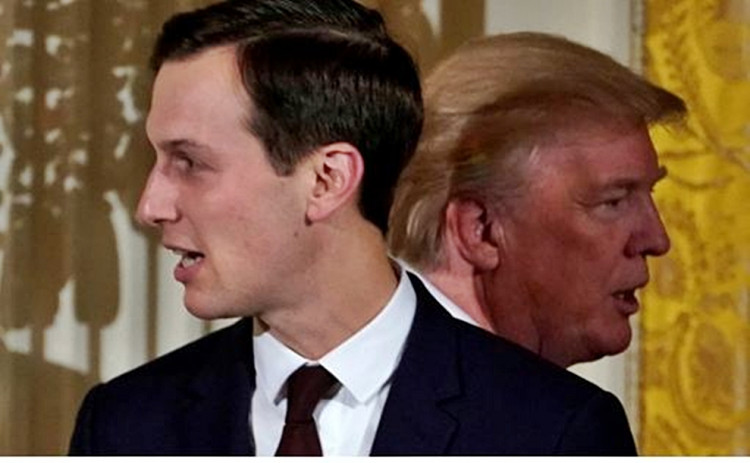Presidential son-in-law and adviser Jared Kushner refuses to comment on allegations he deliberately inflated the amount of an arms deal between the United States and Saudi Arabia on orders of his father-in-law, President Donald Trump.
In May 2017, Kushner announced with much fanfare that Saudi Arabia had agreed to purchase U.S. arms worth a staggering $110 billion, the largest arms sale in U.S. history. Fear of jeopardizing this mammoth deal is seen as the main reason why Trump refuses to blame Saudi Crown Prince Mohammad bin Salman for ordering the murder of dissident Saudi journalist Jamal Khashoggi.
The CIA has determined the Crown Prince approved the assassination of Khashoggi, but Trump refuses to say so himself in public.
American media citing reliable White House and defense department sources say Kushner ordered administration officials to inflate numbers for the alleged $110 billion arms deal with Saudi Arabia.
Two administration officials and three former White House officials told a U.S. news network that Kushner pressed the Department of Defense and the Department of State to inflate the arms sales amount to $110 billion by including aspirational or proposed arms sales.
Information that has since surfaced shows that instead of $110 billion, Saudi Arabia so far has only signed "Letters of Offer and Acceptance" (LOAs) for $14.5 billion in sales of helicopters, tanks, ships, weapons and training.
This figure from the Pentagon, however, was inflated in an attempt to solidify the new alliance between the Trump administration and Saudi Arabia. The lie was also intended to portray the massive deal as a victory for the president's first foreign trip last year.
The implication from these allegations is that Kushner acted on orders of Trump to inflate the amount of the deal.
White House sources said Kushner knew the Pentagon realistically had only $15 billion worth of deals in the pipeline with Saudi Arabia. They said that what followed was a series of communications between Kushner and Defense and State Department officials about how to boost that number massively in light of the arms deal.
Kushner was referring to a signed a Memorandum of Intent (MOI) with the Saudis on foreign military sales over the next 10 years. The MOI does not include details about the quantity and types of defense weapons to be bought by Saudi Arabia.
White House sources said the five-page list of possible arms sales to Saudi Arabia "does not create any authority to perform any work, award any contract, 'issue articles from stock', transfer funds, or otherwise obligate or create a binding commitment in any way either for the United States or the Kingdom of Saudi Arabia."
The "wish list" consisted of weapons Saudi officials had shown an interest in. It also included military equipment the Pentagon said Saudi Arabia needed.
Oddly, there has been no news about any weapons deliveries to Saudi Arabia since the deal was signed in May 2017.






